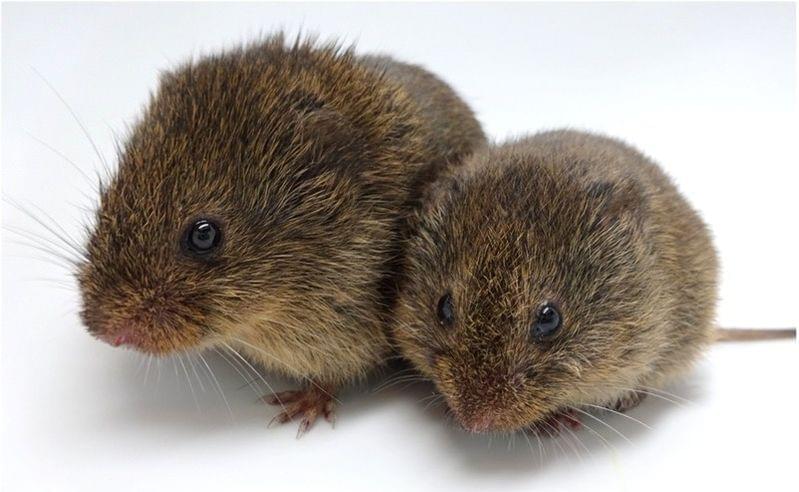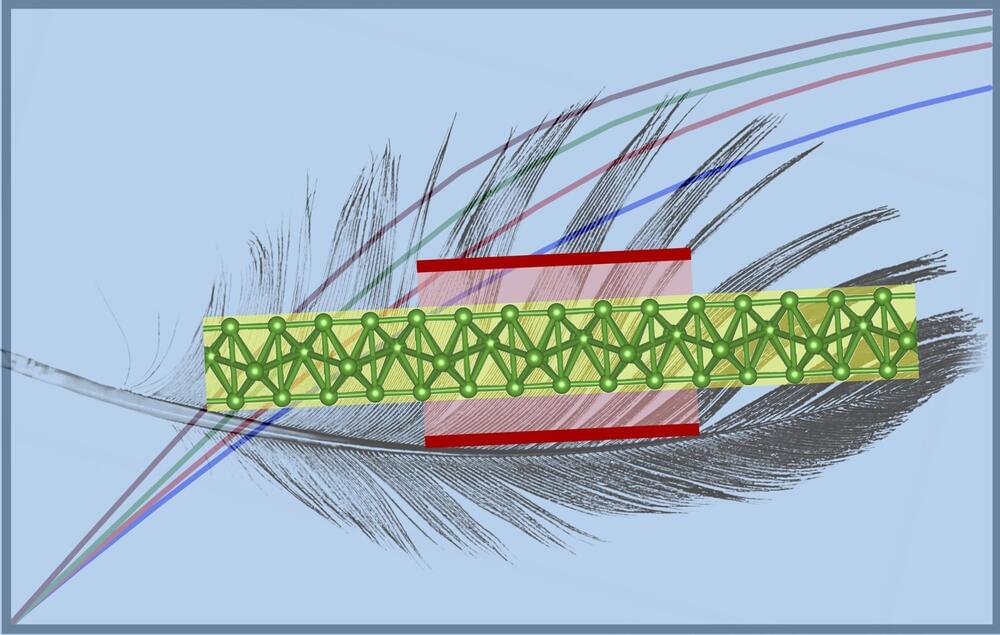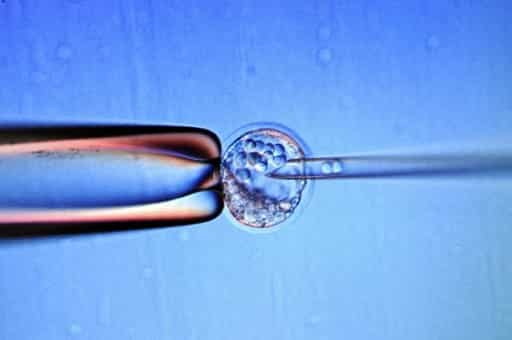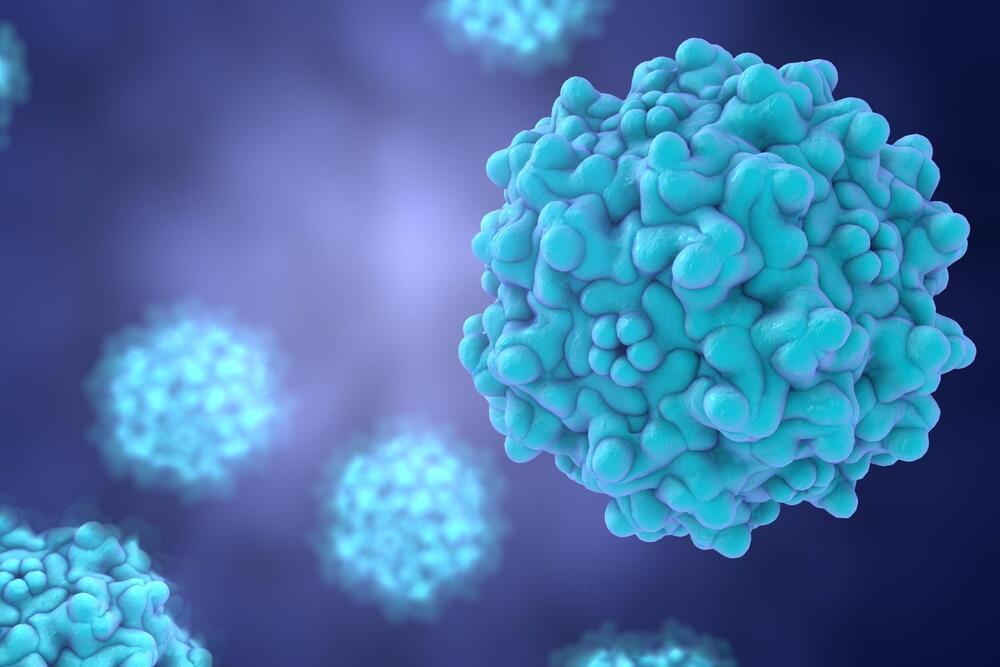Prairie voles lacking functional receptors for oxytocin form normal social bonds, a finding that could explain the hormone’s clinical failures.



Robots are coming. And since the workers are already leaving the industry, no one will be harmed and service will be cheaper. Loving it!
Nearly three years since the coronavirus pandemic upended the labor market, restaurants, bars, hotels and casinos remain perpetually short-staffed. But these workers didn’t disappear, they found better jobs.

The incorporation of exotic DNA
DNA, or deoxyribonucleic acid, is a molecule composed of two long strands of nucleotides that coil around each other to form a double helix. It is the hereditary material in humans and almost all other organisms that carries genetic instructions for development, functioning, growth, and reproduction. Nearly every cell in a person’s body has the same DNA. Most DNA is located in the cell nucleus (where it is called nuclear DNA), but a small amount of DNA can also be found in the mitochondria (where it is called mitochondrial DNA or mtDNA).
Welcome Back To Future Fuse Technology today is evolving at a rapid pace, enabling faster change and progress, causing an acceleration of the rate of change. However, it is not only technology trends and emerging technologies that are evolving, a lot more has changed this year due to the outbreak of COVID-19 making IT professionals realize that their role will not stay the same in the contactless world tomorrow. And an IT professional in 2023–24 will constantly be learning, unlearning, and relearning (out of necessity if not desire).Artificial intelligence will become more prevalent in 2023 with natural language processing and machine learning advancement. Artificial intelligence can better understand us and perform more complex tasks using this technology. It is estimated that 5G will revolutionize the way we live and work in the future. From the evolution of Artificial Intelligence (AI), the internet of things (IoT), and 5G network to cloud computing, big data, and analytics, technology has the capacity or potential to transform everything, revolutionizing the future of the world. Already, we see the rapid roll-out of autonomous vehicles (self-driving cars) currently in trial phases for all car companies, and Elon Musk’s Tesla is improving the technology by making it more secure and redefined. Forward-thinking and innovative companies seem not to miss any chance to bring breakthrough innovation to the world…in this video, we are looking into The World Will Be REVOLUTIONIZED by These 18 Rapidly Developing Technologies.
TAGS: #ai #technologygyan #futureTechnology.
RIGHT NOTICE: The Copyright Laws of the United States recognize a “fair use” of copyrighted content. Section 107 of the U.S. Copyright Act states: “Notwithstanding the provisions of sections 106 and 106A, the fair use of a copyrighted work, including such use by reproduction in copies or phonorecords or by any other means specified by that section, for purposes such as criticism, comment, news reporting, teaching (including multiple copies for classroom use), scholarship, or research, is not an infringement of copyright.” This video and our YouTube channel, in general, may contain certain copyrighted works that were not specifically authorized to be used by the copyright holder(s), but which we believe in good faith are protected by federal law and the fair use doctrine for one or more of the reasons noted above.


In the year 1,808, French chemists Joseph-Louis Gay-Lussac and Louis-Jacques Thenard, and independently, English chemist Humphry Davy, discovered the fifth element of the periodic table—boron. In crystalline form, boron primarily possesses three polymorphs, i.e., three distinct unit cell configurations: α-rhombohedral, β-rhombohedral, and β-tetragonal, among 16 possible bulk allotropes.
The unique properties of this element have resulted in its use in numerous applications, including chemistry, materials science, life sciences, energy research and electronics. Moreover, based on studies conducted over the past decade, boron has significant potential for use in pharmaceutical drug design as it plays an essential role in bone growth and maintenance, wound healing, prevention of vitamin-D deficiency and other processes.
In the periodic table of elements, boron lies to the left of carbon, which causes boron to have similar valence orbitals but a shorter covalent radius. In contrast to carbon, which favors a 2D (two-dimensional) layered structure (aka graphite) in its bulk form, the bulk allotropes of boron are composed of B12 icosahedral cages. As a result, it was challenging to experimentally realize a 2D atomic network of boron, also known as borophene, until 2015.

Scientists in China have cloned what are being called ‘super cows’, local media has reported. These cows are reportedly able to produce huge amounts of milk in their lifetime. The cows have been cloned as part of a process to reduce China’s dependence on foreign breeds. According to China’s Global Times, about 70 per cent of China’s dairy cows are imported from other countries.
The ‘super cows’ are three calves which have been cloned by China’s Northwest University of Agricultural and Forestry Science and Technology. These calves were born in Ningxia region in weeks leading to January 23, said reports in local media.
Jin Yaping, lead scientist of the project described the successful cloning as ‘breakthrough’.

Warm dense matter (WDM) measures thousands of degrees in temperature and is under the pressure of thousands of Earth’s atmospheres. Found in many places throughout the universe, it is expected to have beneficial applications on Earth. However, its investigation is a challenge.
Even the temperature of a material under WDM conditions is anything but easy to determine. A team of researchers led by Dr. Tobias Dornheim from the Center for Advanced Systems Understanding (CASUS) at HZDR has demonstrated a mathematical solution that allows an accurate assessment of the temperature.
As the team points out in the journal Nature Communications, their method can readily be used at experimental facilities of matter research around the world and expedite the gain of scientific knowledge.

A judge in Colombia caused a stir by announcing he had used the AI chatbot ChatGPT in preparing a ruling in a children’s medical rights case.
Judge Juan Manuel Padilla said he used the text-generating bot in a case involving a request to exonerate an autistic child from paying fees for medical appointments, therapy and transportation given his parents’ limited income.
Padilla told Blu Radio on Tuesday that ChatGPT and other such programs could be useful to “facilitate the drafting of texts” but “not with the aim of replacing” judges.

My recently published perspective paper has been featured by GEN Genetic Engineering & Biotechnology News!
#biotechnology #genetherapy #syntheticbiology
Synthetic biology has the potential to upend existing paradigms of adeno-associated virus (AAV) production, helping to reduce the high costs of gene therapy and thus make it more accessible, according to a recent paper.
AAVs are an important vector for gene therapy, but AAV manufacturing is complex and expensive. Furthermore, first author Logan Thrasher Collins, a PhD candidate at Washington University in Saint Louis, tells GEN. “Many current industry approaches to enhancing AAV yields involve incremental process optimization. Synthetic biology has the potential to offer more radical improvements, yet is relatively underappreciated in the context of AAV production.”
Large-scale production poses challenges not typically found during preclinical stages, such as batch-to-batch variations in plasmid yield and purity, and poor yields from producer cells, the research team notes. Likewise, downstream processing challenges also are present, such as AAV aggregation, chemical lysis, and filtration complications. The rational approach to AAV design offered by synthetic biology, however, enables scientists to programmably design systems that assemble complex macromolecular structures and to avoid—or at least minimize—many of those challenges.